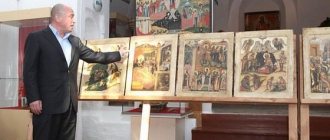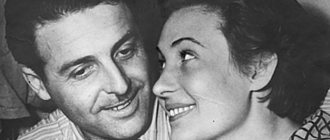It is believed that it is better to revel in the poetry of some poets at the dawn of one’s life, that is, at a young age. The limitlessness of desires, the rebelliousness of overwhelming passions and the fascination with high romantic feelings are the reason for this. The lyrics of Mikhail Yuryevich Lermontov are extremely original and versatile. At the very beginning, it is full of excitement, the search for civil, and most importantly, poetic destiny, and maybe even self-determination.
He grew up in a real aristocratic family and his fate is completely shrouded in secrets and mysteries. One thing is certain, he became famous overnight by writing just one poem in honor of a person he never knew personally. Let's figure out what is reliably known about his short but very fruitful life.
Mikhail Yurievich Lermontov: biography of a brave man
The famous Russian literary critic Vissarion Belinsky believed that Lermontov’s work in Russian and world literature is a completely new link in the chain of development of society as a whole and the individual within it. Today, even ordinary schoolchildren can answer who Lermontov is because his work, his immortal lines, most fully expressed the same ideological sentiments, as well as trends that existed in the early thirties of the nineteenth century.
During the period of total, gloomy and hopeless reaction, it was Mikhail Yuryevich who awakened the consciousness of people, he expressed a fierce protest against social and political pressure and oppression. He always called for action, for struggle, revealing the full depth of the plight of a thinking, reasonable, intelligent person in the feudal, cruel pincers of autocracy.
Important
Mikhail Yuryevich himself never formally took part in riots, riots and protests, nor was he in exile, although his service trip to the Caucasus resembled something similar. However, he managed to raise the banner of the Decembrists in completely new conditions and continue their difficult work. “Working” with just a word, the poet and writer Lermontov personally prepared the path along which democratic revolutionaries confidently walked in the sixties.
Subsequently, both Chernyshevsky and Dobrolyubov, as the driving force, the leaders of revolutionary movements, always noted the enormous, simply colossal role of Lermontov’s poetry, which they themselves extremely respected and loved, in the development of Russian social thought in general and literature in particular. The main motive of his work is tough introspection, which is inextricably linked with an overly heightened sense of personality.
However, not everyone shares the same point of view that Lermontov became a real successor of Pushkin’s work, a singer of freedom and a path blazer from slavery to freedom. For example, the famous critic and renowned philologist Vinogradov believes that the genius of a writer lies in skillfully putting together all the previously known methods of expressiveness. Rumor has it that when the martinet Emperor Nicholas first learned that Mikhail Yuryevich was mortally wounded in a duel and died instantly, he said: “A dog’s death is a dog’s death.” Impressive, isn't it?
Origin of the poet
All the information about Lermontov that is freely available is somewhat contradictory, but let’s try to figure out where the noble aristocrat, famous poet and writer Mikhail Yuryevich comes from. If we take the oldest known information as a basis, then it is worth mentioning a semi-mythical character, it is unknown whether he existed in reality, the Scottish bard (songwriter) Thomas Learmonth, who was better known in the world under the name Honest Thomas, who was considered a prophet.
During the hostilities of the sixteenth or seventeenth century, George (George) Learmont was captured by Dmitry Pozharsky, after which he decided to settle in Russia, as they said then, Russified. At first he served the first Romanov - Mikhail Fedorovich, and remained so, and his surname, when he accepted Orthodoxy, was transformed into something more familiar to the Russian ear - Lermontov.
The writer’s great-grandfather, Yuri Petrovich, chose war as his profession, and therefore studied in the gentry cadet corps. He was quite rich, famous and famous, but over time the family began to decline. There is no information about the poet’s grandfather, we only know that his name was Peter and he was an officer. Mishenka’s father was the full namesake of his great-grandfather - Yuri Petrovich, planning to marry Maria Mikhailovna, nee Arsenyeva, retired with the rank of infantry captain. He also had sisters living in Moscow, he was incredibly handsome, hot-tempered and quick-tempered, like a real musketeer or hussar.
On his mother’s side, Mikhail Yuryevich was directly related to Stolypin, since his maternal grandfather, Mikhail Vasilyevich, married Elizaveta Alekseevna, nee Stolypina, the daughter of the local governor, after his retirement. After that, he acquired the Tarkhany estate, not far from Penza, where the future genius of the pen and sword spent his childhood. Her father and mother were neighbors on estates, and the girl married a handsome retired officer at the age of seventeen, and never regretted it. After the wedding, the couple settled in Tarkhany, and on the night of October 2-3, 1814, a boy was born, who was named Mishenka.
Childhood and youth, in love with the Caucasus
The Lermontov family idyll did not work out from the very beginning, as the father quickly lost interest in Mishenka’s mother. He started affairs with neighbors, with his own son’s wife, with courtyard girls, in general, he was loving, which his wife could not help but find out about. There were even outright fights, because of which the woman suffered greatly. As a result, she fell ill with consumption (tuberculosis) and died, and her father had no choice but to hand Mikhail over to his grandmother, that is, his mother-in-law, to be raised.
Little Lermontov was a weak and sickly child, but his grandmother simply doted on him. You can learn first-hand about the poet’s childhood from the work “Menschen und Leidenschaften”, where he very realistically reflected the difficult relationship between his father and grandmother. In adulthood, he will see his father only once and this will be a completely conscious decision. Misha's entire childhood was marked by scrofula, from which he suffered so much that his grandmother even invited a doctor from abroad - the French Jew Anselm Levy (Lewis). In one of his early unfinished works, he himself recalls these years with the words that his hero, “deprived of the opportunity to indulge in the usual amusements of children, learned to think.”
Lermontov's history is short, but rich and multifaceted, so it is worth paying more attention to him. At the age of ten, it was decided to take the sickly boy for treatment and the best decision was the Caucasus. It was here that he first saw a girl who aroused excitement in him, confusion in his thoughts and feelings. In the twenty-fifth year of the nineteenth century, teachers began to study with Misha, but the choice turned out to be not very successful. However, the boy showed interest in literature just then; he discovered a huge library and began to read books avidly, writing down his own poems in a separate notebook. He wrote a lot in childhood about the Caucasus, which he loved with all his being.
Moscow and first love
In the twenty-ninth year, his grandmother brought Misha to Moscow and sent him to study in the fourth grade of the university noble boarding school, in which he was able to become acquainted with French, English, and most importantly, Russian literature and folk arts. He learned four languages, learned to play musical instruments, and read so many books that one can only envy. During this period, he already wrote “Demon”, “Duma” and “Monologue”. In the thirties, the boarding house was reformatted into a lyceum, and Lermontov left its walls. One day at the dacha he meets Katenka Sushkova, to whom he dedicates poetry. However, the young beauty did not appreciate the courtship of the equally young poet or simply did not understand.
In the same year, he discovers Byron and begins to identify himself with the poets, realizing his own predestination. In the thirty-first, he met Natalya Fedorovna Ivanova, to whom a whole series of essays is dedicated. She also did not appreciate the poet’s sublime feelings, but he was grateful to her for the fact that he had to experience such strong emotions. In the spring of thirty-two, he left the walls of Moscow University, where he was enrolled two years ago. Around the same time, he first became interested in mysticism and mathematics and willingly painted landscapes in watercolors, which he also did well.
The poet's military career
After university, young Mikhail, under the pressure of his St. Petersburg relatives, as well as at the request of his grandmother, entered the school of guard ensigns and cavalry cadets and stayed there for two years, although he did not like it at all. Just before this, he publishes the poem “Sail,” which well reflects the poet’s thoughts and feelings at that time. While studying, he worked on a large historical novel, which was never destined to be completed, called Vadim, which dealt with the Pugachev rebellion, which was a taboo topic.
At school, he became addicted to youthful amusements and wild life, causing his grandmother and older relatives to worry, as well as all those who saw the potential of his talent. However, the first obscene poems about the intimate entertainments of the cadets brought him the beginnings of fame and fame. After leaving the school in February 1834, Lermontov was appointed cornet in the Life Guards Hussar Regiment. At this time, fate again brings him together with the matured Katenka Sushkova, who is already getting ready to get married. He cruelly upsets her wedding, makes her fall in love with him, and then simply leaves, taking away her friend Lopukhin, who acted as her fiancé.
In 1937, Pushkin died in a duel, which caused talk and gossip in the world. Misha was sick at that time, and from such news he fell ill, but then he found strength and wrote the immortal poem “The Death of a Poet.” It was this work that made his talent public. A previously unknown cadet rhymer becomes a significant and influential figure. The poems caused a huge resonance, he was condemned, scolded, arrested and even sorted out in something, under the close supervision of the king himself. Friends of the late Pushkin, including Zhukovsky himself, pulled the young poet out of the tenacious clutches of justice, and cornet Lermontov was urgently transferred to the Nizhny Novgorod Dragoon Regiment, which was just serving in the beloved Caucasus.
The poet's parents
An interesting fact is that Lermontov’s personality was formed not without the influence of his grandmother. Elizaveta Alekseevna Arsenyeva was a strong and powerful woman. It was she who insisted that the boy be called Mikhail, and not Peter, as the writer’s father, Yuri Petrovich, an attractive, stately man, but frivolous, wanted.
The retired captain met the future mother of his child in Vasilievsky, where he was invited to a reception by acquaintances who turned out to be relatives of Maria Mikhailovna. Arsenyeva married Lermontov while still very young. Elizaveta Alekseevna did not approve of this marriage, but she had to come to terms with her daughter’s choice.
Review of Literary Creativity
The Caucasus had the strongest and most serious influence on the poet. It is here that he begins to look sensibly and maturely at things that previously seemed incomprehensible and vague to him. In Tiflis, Mikhail Yuryevich even began to learn the Azerbaijani language, which was then called Tatar, which was taught to him by the famous educator Mirza Fatali Akhundov. After returning from the Caucasus, he already becomes a famous and sought-after poet and writer, everyone is looking forward to new releases, and his fans are already looking forward to each issue of Kraevsky’s popular magazine “Domestic Notes” with special impatience. These were probably the calmest and most successful years of Lermontov’s life.
In the winter of February 1840, at a ball hosted by Countess Laval, Lermontov managed to quarrel to smithereens with the son of the French Ambassador, Ernest Barant, which was followed by an immediate challenge to a duel. Two days later, just along the ill-fated road to the Black River, a duel took place, but for some reason Misha’s blade broke. Then the duelists took pistols in their hands, Ernest missed the target, and Lermontov himself shot to the side, at which point the incident was completely settled. However, for “failure to report a duel,” Mikhail Lermontov was brought to trial, but for some reason his opponent was not touched.
Chronology of publications of some works
He was sent back to the Caucasus, but this trip was not much like the previous one; he ended up on the front line. However, Mikhail's character was so cool and reckless that he immediately distinguished himself. During the same period, he begins to publish individual chapters of the great novel “A Hero of Our Time.” It was in 1840 that the first, and the only collection of his poems during the poet’s lifetime, was published. It included twenty-six poems and two major poems: “Mtsyri”, as well as “Song about the merchant Kalashnikov”.
In life
- “Hadji-Abrek” (“Library for Reading”, 1835).
- “Borodino” (“Contemporary”, 1837).
- “Song about Tsar Ivan Vasilyevich” (“Literary Additions” to “Russian Invalid”, 1838).
- “Duma” (“Notes of the Fatherland”, 1839, vol. I).
- “Bela” (ibid., vol. II).
- “The Palestine Branch” (ibid., vol. III).
- “Three Palms” (ibid., vol. IV).
- “Fatalist” (ibid., vol. VI).
- “Gifts of the Terek” (ibid., vol. VII).
- “Taman” (ibid., 1840, vol. VIII).
- “Airship” (ibid., vol. X).
- “Angel” (“Odessa Almanac”, 1840).
- “The last housewarming” (“Otechestvennye zapiski”, 1841).
- “Sail” (ibid., vol. VIII).
- “Dispute” (“Moskvityanin”, 1841).
- “A Fairy Tale for Children” (“Notes of the Fatherland”, 1842, vol. XX).
After death
- “Izmail-Bey” (“Notes of the Fatherland”, 1843, vol. XXVII).
- "Tamara" (ibid.).
- “The Death of a Poet” (Herzen’s almanac “Polar Star” for 1856; “Bibliographic Notes”, 1858) and much more.
Selected editions
- “Hero of Our Time” (St. Petersburg, 1840).
- "Poems" (1840).
- "Works" (1847).
- "The Demon" (1857).
- "Angel of Death" (1857).
- "Works" (1860, 1863).
- "Poems" (1862).
- “Poems not included in the latest edition of the works” (1862).
- "Works" (1865, 1873).
Lermontov the artist: with pen and brush
We should not forget that Lermontov was talented not only in literature, he was also engaged in other types of creativity. For example, he painted very good paintings that have survived to this day. The first teacher of the future poet was Alexander Stepanovich Solonitsky, a professional artist, who prepared Misha to enter the boarding school, but he could only give the boy the basics, he did not have time to do more. In 1937 and 1940, the artist Pyotr Efimovich Zabolotsky painted portraits of Lermontov, and he begged to take lessons from him.
Mikhail's first paintings are filled with the influence of Rembrandt, especially his watercolors. Moreover, he painted many canvases of a wide variety of orientations, from military to caricatures and genre scenes. Among his works you can find portraits, landscapes, genre paintings, as well as many scattered sketches. Quite a lot of Lermontov’s creations have survived, but many of his paintings have been lost to posterity.
The poet's quarrelsome disposition
Like his predecessor Pushkin, Mikhail Yuryevich had a cocky and impudent disposition, which often made him undesirable in some homes. Society was not very fond of hot-tempered youths who were able to stand up for themselves and fight back even extremely respected people. They said about Misha that he was a “repulsive person”, “fundamentally unpleasant”, “arrogantly despising people.”
He really was like that, locked in his shell since childhood, not having the right to express his will, he unexpectedly turned around and blossomed into a flower of sarcasm, irony and sometimes quite malicious humor. At the same time, he was always open and pleasant in communication with his close circle of friends. Therefore, he repeatedly received challenges to duels, and he himself often threw away his gloves. True, out of thirty to forty calls, it was possible, fortunately, to bring the action to its logical conclusion only three times, and the third time was truly fatal.
Mikhail's education
The year 1825 was a turning point for Lermontov. His grandmother hired him tutors, a Frenchman and a Greek, who, by the way, did not live up to her expectations. One teacher soon quit teaching the boy, and Mikhail did not receive any valuable knowledge from the second teacher. Fortunately, he was inquisitive by nature, so the boy could often be seen reading one of the books that were part of the collection located in Tarkhany. The boy studied willingly at home on his own. At the age of 13, Mikhail Lermontov began intensively preparing to enter an institution that could provide him with a quality education.
Moscow, where he moved with his grandmother, became home to him. Here in 1828 he was enrolled in the University boarding school. Two years later, the guy moved to Moscow University, choosing the moral and political faculty. He soon realized that he was more interested in other subjects, so the decision was made to transfer to the verbal department.
The school provided a good base, he had the opportunity to get the education he wanted, but in 1832 the guy left the university, allegedly of his own free will. But, as it turned out, this was preceded by a quarrel with one of the university professors, who insisted on Mikhail’s departure. He eventually entered the School of Guards Ensigns and Cavalry Junkers, from which he graduated in 1834.
Amorous Lermontov: personal life and death of the great poet
As we have already mentioned, Lermontov’s first love at the age of ten was an unknown girl, and already at the age of sixteen he fell madly in love with Katenka Sushkova, whose revenge we have already mentioned. Many believe that Misha actually experienced youthful suffering not because of her, but because of Varenka Lopukhina. Modern researchers cannot find out more reliably.
Women of forever young Lermontov
Misha Lermontov's first serious hobby happened when he was barely twenty-four. In 1938, he met the dazzling beauty Alexandra Smirnova-Rosset. Yes, this was exactly the girl to whom Pushkin composed odes, Gogol and Vyazemsky sang praises, but the husband became a much older man, and who also did not pay much attention to his wife. It was rumored that from this relationship Alexandra even gave birth to a daughter, Nadenka, but there is no confirmation of this.
In the winter of '39, Mikhail became interested in another girl; he was captivated by Maria Alekseevna, the nineteen-year-old widow of Count Shcherbatov, who was considered very beautiful. They said that the quarrel with the son of the French ambassador happened precisely because of Mashenka. After the duel, he was exiled and the incident was over, and the young beauty went on her way. In addition, many believe that the connection with Natalya Solomonovna Martynova, the sister of his close friend, was the reason that they quarreled and ultimately a tragedy occurred.
The finale of the life of the night luminary of Russian poetry
Lermontov met his future involuntary executioner while still in training, that is, at the school of guard warrant officers. They immediately got along because they looked at life from a similar perspective. They wandered around the taverns together, drank bitters and walked together, as only Russians can, Misha visited Martynov’s parents in Moscow. It is believed that it was Natalya Solomonovna Martynova who caused the breakdown in relations between friends; because of her, a quarrel allegedly occurred, followed by a challenge to a duel.
On July 15, 1841, not far from Pyatigorsk, a duel took place between the Mashuk and Beshtau mountains, accompanied by the thunder of lightning and endless streams of rain. Misha raised the pistol and shot to the side, not even wanting to aim at his friend, but the latter, who, by the way, was never famous for his accuracy, pointed the muzzle of his pistol straight at the poet’s chest, which is why he died instantly. At first he was buried in Pyatigorsk, but after 250 days the grandmother achieved exhumation and transportation of the remains to her native Tarkhany. At the end of April 1842, his body finally rested between the graves of his mother and father.
In memory of the forever young Lermontov
In 1862, the monument “1000th Anniversary of Russia” was opened in Veliky Novgorod, commissioned by the emperor himself. Among one hundred and twenty-nine outstanding personalities who were of great importance in the history of the Motherland, there is Mikhail Yuryevich Lermontov. A little more than two decades later, a monument to the poet was opened in Pyatigorsk; there are many streets, squares and roads named after him, and even entire settlements are named after Lermontovka and Lermontovo.
In Grozny there is a theater named after Lermontov, as well as a monument to the young poet in front of the building. Commemorative coins and stamps were issued in his honor. Books, poems, songs, and numerous cinematic masterpieces were dedicated to him. For example, in 2012, a feature film called “The Ambassador of the Dawn” was released, in which Oleg Amirbekov played the main role.
Childhood and youth
The poet was born in Moscow, but Lermontov spent his childhood mostly in an estate in Tarkhany, Penza province. The poet's mother was sick a lot before and after the birth of the heir. The fragile girl, captivating those around her with her musical talent and boundless kindness, died before she turned 22 years old. The year was 1817.
Lermontov, whom his family called Michel in childhood, inherited his health from his mother. He was weak, he was tormented by scrofula, because of which the boy had to endure the mockery of his peers. This could not help but depress him, so as a child the future poet seemed gloomy to those around him.
Lermontov’s grandmother always took an active part in Mikhail’s life, but she took full responsibility for his upbringing after the death of her daughter. The boy lived without needing anything. Mikhail absorbed knowledge like a sponge, he was attracted to art, and Lermontov’s relative supported this interest in every possible way. At the same time, paying him for lessons in playing the violin, flute, piano, classes with mathematics teachers, philologists and more. Mikhail’s home was his grandmother’s house, located on Malaya Molchanovka Street. Now this estate is open as a museum.
Elizaveta Alekseevna wanted the young man to grow up not only educated, smart, well-mannered, but also healthy.
She invested a lot of money in his treatment and prevention of various diseases. When the boy was 10 years old, he went on a trip for the first time and had the opportunity to visit the Caucasus, where wealthy people went to improve their health with mineral waters.
Lermontov later expressed his impressions of the indescribable beauty of the nature he saw, as well as of the first love he met in Goryachevodsk, in a number of his poems. It is interesting that even at a young age, Mikhail wanted to become a writer. He was admired by Byron and remained his inspiration until the last days of the poet's life.
Debut and trial
The death of Pushkin in 1837 made such a strong impression on Lermontov that he wrote the poem “The Death of a Poet,” in which the young poet accused Dantes and everyone who did not appreciate the “luminary of Russian poetry” during his lifetime:
Wasn’t it you who at first so viciously persecuted His free, bold gift And for fun fanned the Slightly hidden fire? Well? have fun... - he could not bear the last torment: The wondrous genius faded away like a torch, The solemn wreath faded.
The poem brought fame to the poet, but it was followed by Lermontov’s arrest and trial - the poet was too zealous in defending the deceased Pushkin. The grandmother tries to soften the fate of her grandson, and Pushkin’s friends stand up for the young, ardent poet - as a result, Lermontov is sent into exile to serve in the Caucasus.
Personal life, women
Lermontov's biography is not complete without mention of his personal life. Mikhail's first serious hobby was Ekaterina Sushkova. At that time, a neighbor's girl with expressive dark eyes. For them, she was called “Missblackeyes” in high society.
Having met the beauty in 1830 in the domain of Baroness Hugel, the poet could not forget her, which he did not intend to hide. Unfortunately, his feelings were unrequited. Catherine was not impressed by the fact that Lermontov knew foreign languages, played beautiful melodies using various musical instruments and generally had a rich spiritual world.
In 1831, Mikhail met his second love. A girl named Varvara Lopukhina was ready to become the poet’s wife, but her parents did not support her zeal. The young people were forced to leave. Soon Natalya, the daughter of the notorious Fyodor Ivanov, appeared in Lermontov’s life.
The girl chose between two suitors and preferred the wealthier and more experienced gentleman to the writer. This was a big blow for Mikhail. He reflected his experiences in poetry. Not having time to recover from one shock, Lermontov was faced with another. The next news was that Varvara had married for convenience.
Duel between Lermontov and Martynov
Mikhail Lermontov fought a duel with Martynov in the Caucasus, where he returned from St. Petersburg without much desire. There was a conflict between the poet and the retired major. It is not known for certain why the men quarreled, but later Martynov himself claimed that M. Lermontov regularly allowed himself to make various barbs at him.
When Pyatigorsk brought them together, Nikolai no longer tolerated these insults from the writer. Despite the fact that the opponents agreed to shoot “until the end,” the poet sent the first bullet into the air.
Martynov did not follow Lermontov’s example. In 1841 he killed him with a shot in the chest. Mount Mashuk, its northwestern slope, was chosen as the site of the duel. This is where the great Russian genius died.
Back to the Caucasus
Lermontov's first duel did not result in death. The duelists remained unharmed, but the authorities learned about their battle and considered that the “secret” clash between the poet and the French attache fell under the article “failure to report a duel.”
Mikhail Lermontov found himself in court again. Interestingly, his opponent managed to avoid the same fate, for whom the emperor himself stood up. At the hearing, the writer declared his readiness to shoot again if Baranto wanted it. Here he was accused of trying to re-organize an illegal duel. The case ended with a court decision to send the unfortunate writer to the Caucasus.
Lermontov ended up in the Tenginsky infantry regiment. This time he found himself on the front line of the Caucasian War. He was mentally prepared for this. The poet demonstrated courage by taking part in fierce battles, including the battle on the Valerik River.
This event had a great influence on him. Impressed by what happened, Mikhail wrote a poem that later became popular. Lermontov was given leave only after two years of service. He decided to spend it preparing for the publication of “The Demon.”
Creative path, briefly
Lermontov began writing his own poems early. Mikhail first realized his talent in 1828. Then he was a student at a Moscow boarding house, which the guy left in 1830. By that time, he had created many literary works, including dramatic ones, like “People and Passions.”
It is interesting that his work first appeared in print only five years later. Lermontov's works were received warmly. The public was delighted with the drama Masquerade of 1835. Such works of the Russian genius as “Mtsyri”, “Taman”, “Demon”, “Boyarin Orsha”, “Prisoner”, written by the poet in his cell in 1840. You can endlessly admire such brainchildren of Mikhail Yuryevich as “Borodino”, “Hero of Our Time”, etc.
In the city on the Neva
In 1832, the young man arrived in St. Petersburg, hoping to continue his studies at the capital's university. However, they refused to accept him into the 3rd year (including two years of study in Moscow). He was offended and radically changed his plans - he went to the School of Guards Ensigns.
While walking near the Gulf of Finland, Lermontov created his famous work of belles-lettres, which became his poetic credo - “Sail”. But instead of the glorified “storm, escape and happiness” at the educational institution, two “ill-fated”, in his words, years of barracks drill and a ban on reading fiction awaited him. In his studies, he was among the best students, behaved defiantly and independently, continued to create, but experienced a moment of decline in creative activity.
https://www.youtube.com/watch?v=oHNfPkQxmog
In 1834, a 20-year-old graduate of the School began serving in the Guards Hussar Regiment, located in Tsarskoye Selo. Finally feeling free, he plunged into the social life of the capital, working on “Masquerade”, “Boyar Orsha”, and on the novel “Vadim”. The poet's debut in print was the poetic story "Hadji-Abrek". In 1835, it was transferred to the publication “Library for Reading” by Nikolai Yuryev.
In 1837, the young writer was shocked by the news of the death of Alexander Pushkin. He created the essay “The Death of a Poet” that made him famous at the age of 23, expressing the grief and anger of progressive Russian society and directly pointing to the murderers. Its political severity and widespread dissemination caused concern among the authorities. The author, who by that time had written more than 300 poems, several plays, poems and showed himself to be a mature master, thinker and patriot, was taken under arrest. Sitting in his cell, he wrote in soot on wrapping paper: “Prisoner,” “Prayer,” “Desire.”
Lermontov - playwright
Lermontov also tried his hand at the dramatic genre. The most significant play was the drama "Carnival", which he remade 5 times, and which the censor stubbornly did not want to let through. This drama is written in poetic form. The censorship probably saw in it a parody of the secular society in which Lermontov was forced to move, and which he always treated with sarcasm. Mikhail Yuryevich managed to write 6 plays.
Lermontov appeared on the literary horizon as a bright star that shone brightly, but not for long. He became the last romantic of literary Russia. He could have written many wonderful works; perhaps, over time, he would have returned to the works he began and unfinished. But God and people decided his fate differently.
Lermontov - citizen
Lermontov was 11 years old when the December uprising took place. His growing up and formation of his civic position took place during a period of brutal reaction and timelessness. The tsarist government was frightened by the events taking place in Europe, and understood perfectly well that the stone of revolution thrown into the monarchical waters would form circles of new thinking that would certainly affect Russia. The authorities tightened the screws as best they could. Lermontov felt that he could have been more useful. His poems “Prediction” and “Death of a Poet” are a cry from the soul. He tried to reveal the ulcers of noble society through literature, but censorship did not allow him to open his mouth.
Lermontov respected the freedom-loving mountaineers, among whom he had many good friends. He understood the savagery and injustice of the Caucasian war, but as an officer, he was forced to follow orders. Residents of the Caucasus also treated the Russian poet and fearless officer with respect. In Georgia, despite difficult relations with Russia, there are still Lermontov streets in Tbilisi and other cities.
Death of a creative person, where and how he was buried
Lermontov died almost instantly. The doctor was not able to ascertain the fact of the poet’s death immediately, since he arrived at the site of the duel very late due to a thunderstorm with heavy rain.
Despite Mikhail’s young age, in St. Petersburg the news of his death was greeted rather coldly. Rumor has it that even the emperor spoke unflatteringly about his death. Later, however, at the insistence of the princess, he named Lermontov as the one who could replace Pushkin for the Russian people.
The poet's comrades tried to ensure that Mikhail was buried with church rites. Ultimately, they failed to achieve their goal. For 250 days, the grave was located in Pyatigorsk, in the old city cemetery, where his body was interred on July 29. Later, the writer’s grandmother managed to get permission from the emperor to rebury Mikhail Yuryevich in Tarkhany.
Lermontov was placed in a lead coffin in the family tomb, the chapel where his mother and grandfather rested. His body was brought here in April 1842. This place, like Lermontov’s house in Pyatigorsk, as well as Zheleznovodsk, is visited annually by crowds of tourists.
Martynov's fate
Lermontov's death caused great indignation in progressive circles of Russian society. His killer was harshly criticized by many enlightened people of the time. First, he was sentenced by a military court to deprivation of his entire fortune and demotion. However, the final sentence was more lenient. According to him, Martynov spent three months in a guardhouse, was subjected to church repentance, and then served penance for several years in the city of Kyiv. Subsequently, he wrote memoirs about how Lermontov died at his hands. Nikolai Solomonovich himself died in 1875, at the age of 60, and was buried in the family crypt near the village of Ievlevo. His grave has not survived. In 1924, the Alekseevsky MONO school colony was located in the Martynov family estate. Its inhabitants destroyed the crypt, and the remains of Nikolai Solomonovich were drowned in a local pond. Such was the retribution for the murder of the great poet.
Now you know how and where Lermontov died. This gifted man combined great creative talent and the fearlessness of a true combat officer. His life was short but bright, he managed to write many outstanding works. The name of Mikhail Yuryevich Lermontov is one of the most famous and revered in Russian literature.











